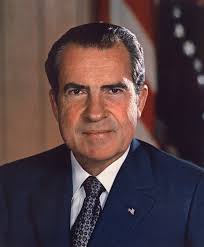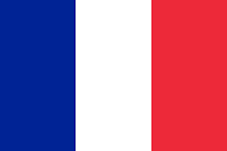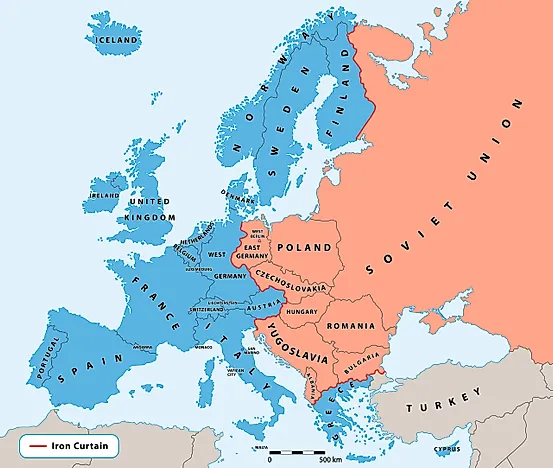This foreign policy by President Harry S. Truman aimed to prevent the spread of Communism by giving aid to Greece and Turkey.
The Truman Doctrine
This American general wanted to use nuclear weapons against China.... and lost his job for it.
General Douglas MacArthur
 He was the communist leader of North Vietnam.
He was the communist leader of North Vietnam.
Ho Chi Minh
This technological invention brought the nation together and replaced the radio.
Television
This alliance consisted of the Soviet Union and eastern European countries in response to the U.N.
The Warsaw Pact
This genre (type) of music was seen as vulgar and an example of cultural rebellion in the 1950s.
Rock and Roll

This President was responsible for getting the United States out of the Vietnam War.
Richard M. Nixon
China and the Soviet Union supported this country during the Korean War.
North Korea
 This country controlled Indochina during the 19th century before losing it to Japan during World War II.
This country controlled Indochina during the 19th century before losing it to Japan during World War II.
France
 This man was a U.S. Senator from Wisconsin who stirred fear of a communist takeover (Second Red Scare) in the United States.
This man was a U.S. Senator from Wisconsin who stirred fear of a communist takeover (Second Red Scare) in the United States.
Joseph McCarthy
This event provided aid to Western Berlin and was led by the United States and helped raise tensions between the U.S. and Soviet Union.
The Berlin Airlift
These mass produced neighborhoods were one of many examples of 1950s consumerism and prosperity.
Leviitown
This U.S. President used the Gulf of Tonkin Incident to get Congress to pass a resolution that allowed more troops in Vietnam.
Lyndon B. Johnson
South Koreans asked this international organization to support them during the war.
United Nations
These soldiers were communist rebel forces in South Vietnam and the primary force to combat American troops during the war.
Viet Cong
He was a controversial rockstar who was accused of "corrupting the minds of young girls."
Elvis Presley
This American foreign policy delivered aid to countries who opposed communism and was named after Secretary of State George Marshall.
The Marshall Plan
This law gave veterans tuition for college, low-interest home loans, and unemployment benefits every year.
The GI Bill
President Eisenhower came up with this theory that claimed that the fall of Indochina to communism would lead to the fall of surrounding nations.
Domino Theory

This nation controlled Korea before World War II.
Japan
This massacre resulted in the deaths of 400 unarmed Vietnamese civilians by American soldiers and an increase in anti-war protests in the United States.
My Lai Massacre
This couple was put on trial and executed for selling atomic secrets to the Soviet Union.
The Rosenbergs
The United States and its western European allies made this alliance in fear of Communism and the Soviet Union.
North Atlantic Treaty Organization (NATO)
Thirteen students were killed or wounded at this university when the Ohio National Guard opened fire on a crowd of anti-Vietnam War protestors.
Kent State Massacre
President John F. Kennedy ordered the U.S. Navy to establish a blockade of this Caribbean country in response to the transportation of Soviet Missiles to the island.
Cuba
North and South Korea was officially divided at this line at the end of the war.
The 38th Parallel
Nixon's policy of withdrawing troops from Vietnam and to equip, expand, and train South Vietnam forces.
Vietnamization
This drill was used by schools in the U.S. to protect themselves from the nuclear bomb.
"Duck and Cover"
 This line divided democracy and communism in Europe.
This line divided democracy and communism in Europe.
The Iron Curtain
This top-secret report urged a massive build-up of the U.S. military and weaponry in response to the Soviet Union's rapidly growing arsenal.
National Security Council (NSC)-68